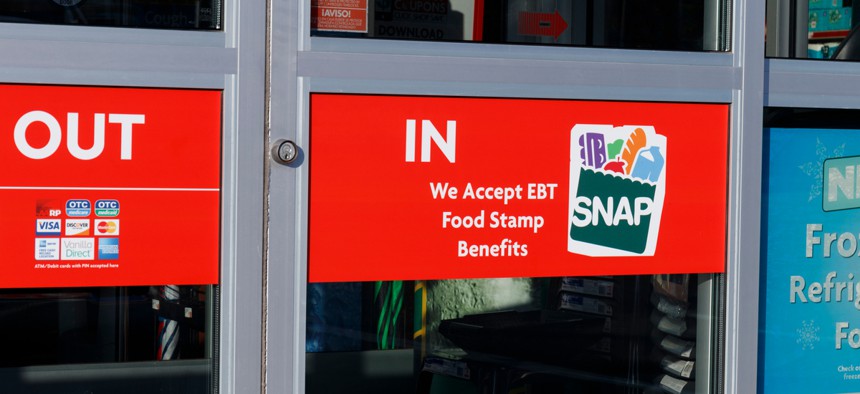Grocery Delivery for Food Stamp Recipients Isn't Necessarily a Food Desert Solution

The U.S. Department of Agriculture in April began piloting an online ordering option so that people with SNAP could get groceries from participating stores delivered to their front doors. Shutterstock
Connecting state and local government leaders
New research shows that letting SNAP recipients order groceries online for delivery works well in urban areas, but doesn’t provide much help to those in rural food deserts.
About 23.5 million live in so-called “food deserts” across the U.S., where access to healthy, affordable options are limited or absent because grocery stores are too far away or transportation options are limited. As many as half of the people living in these areas are low-income and many rely on food stamps.
To make it easier for people who use the Supplemental Nutrition Assistance Program, often known as food stamps, to help pay for groceries get access to a wider selection of goods, the U.S. Department of Agriculture in April began piloting an online ordering option so that people could get groceries from participating stores delivered to their homes. Participants could not use their SNAP benefits to cover the cost of delivery.
At the launch of the pilot, U.S. Agriculture Secretary Sonny Perdue noted that getting to a brick and mortar store can be a challenge in many places, especially for recipients who live in food deserts. “People who receive SNAP benefits should have the opportunity to shop for food the same way more and more Americans shop for food—by ordering and paying for groceries online,” he said. “As technology advances, it is important for SNAP to advance too.”
The pilot started in New York, with Amazon, Walmart, and ShopRite participating. Eventually, it spread to seven other states: Alabama, Iowa, Maryland, Nebraska, New Jersey, Oregon, and Washington.
But allowing people to use grocery delivery services didn’t mean they were available. New research published in the Journal of the American Medication Association found that while the pilot opened up new options for most SNAP households in urban areas without easy access to grocery stores, the benefits were not as strong in rural food deserts.
For the study, researchers identified food deserts in the pilot states by cross-referencing USDA data with census data. Food deserts were defined by census tracts, while delivery ranges for participating retailers were defined by zip code, meaning that each census tract could be fully deliverable, partially deliverable, or not deliverable.
There were 1,191 urban food desert census tracts in the study, and 93% had full access to delivery options, 1% had some access, and 6% had no access. Among the 59 rural food desert census tracts, none were fully deliverable, 31% had delivery availability in part of the census tract and 70% had no delivery options at all.
Eric Brandt, a fellow at the Yale School of Medicine and lead author of the report, said that the difference in delivery availability could have several explanations. “It could be a reflection of technology uptake in different parts of the country or variety of grocery stores available,” he said. “There’s also significant variation across the states.”
The percentage of urban food deserts that were fully deliverable ranged across states from 81% in Alabama to 100% in New Jersey. The state differences in rural areas were starker. In Maryland and Nebraska, there were no food delivery options in rural census tracts, while 73% of rural tracts in New York had some availability.
Approximately 2.3 million people live in low-income, rural areas that are more than ten miles from a supermarket. If they are in a food desert with at least some access to delivery options, online shopping could provide significant assistance, Brandt said. “There’s a clear upfront benefit to this with access,” Brandt said. “But there’s also a benefit in that having access to grocery stores could open up a wider array of food choices that might be healthier and higher quality than local convenience stores.”
Brandt also said the new technology could also allow states to promote better food habits. “This technology could, for example, break down what’s in your online cart,” he said. “States could integrate a system where if you spend less than a certain percentage on things like sugary beverages, you could get a bonus towards fruits and veggies.”
The online option is set to expand to a nationwide policy, and Brandt said a key element going forward will be to figure out which people benefit most from food delivery. “Some groups who may not live in food deserts could actually be the biggest beneficiaries,” he said. “People who are disabled and the elderly may have access to grocery stores but can’t leave the house as readily.”
Emma Coleman is the assistant editor for Route Fifty.

NEXT STORY: When Schools Try to Tweak Winter Break, Families Fight Back



